Modern kitchen quartz countertops have become one of the most popular choices for homeowners looking to combine style, durability, and functionality in their kitchens. Unlike natural stone countertops, quartz is engineered using a mix of natural quartz crystals, resins, and pigments to create a surface that is not only visually stunning but also incredibly resilient. The rise in quartz countertop installations can be attributed to its many benefits, including its non-porous surface, a wide variety of colors and patterns, and low maintenance requirements. This material has redefined kitchen design, making it an attractive option for both contemporary and traditional settings.
One of the main reasons homeowners are drawn to quartz countertops is their remarkable durability. Quartz is one of the hardest minerals on earth, which makes quartz countertops highly resistant to scratches, chips, and cracks. This toughness ensures that the countertops can handle the daily wear and tear of a busy kitchen without showing significant signs of damage. Even when exposed to heavy pots, sharp knives, or frequent food prep activities, quartz countertops can maintain their appearance for years, making them a long-lasting investment.

In addition to their durability, quartz countertops are also known for being highly stain-resistant. Because quartz is non-porous, liquids like wine, coffee, or oil cannot penetrate the surface, making it easy to clean up spills without leaving permanent stains. This is a significant advantage over natural stones like granite or marble, which require regular sealing to protect against stains. With quartz, homeowners don’t need to worry about ongoing maintenance or the fear of accidentally staining their countertops during cooking or entertaining.
Quartz countertops come in a wide array of colors and patterns, offering unparalleled design flexibility. Whether you’re looking for something subtle and neutral or bold and eye-catching, quartz can mimic the look of natural stone or present a more modern, uniform appearance. From pure white to deep charcoal, and even veined patterns that resemble marble, quartz offers endless design possibilities to suit any kitchen aesthetic. Its versatility makes it an ideal choice for both minimalistic modern kitchens and more traditional or eclectic designs.
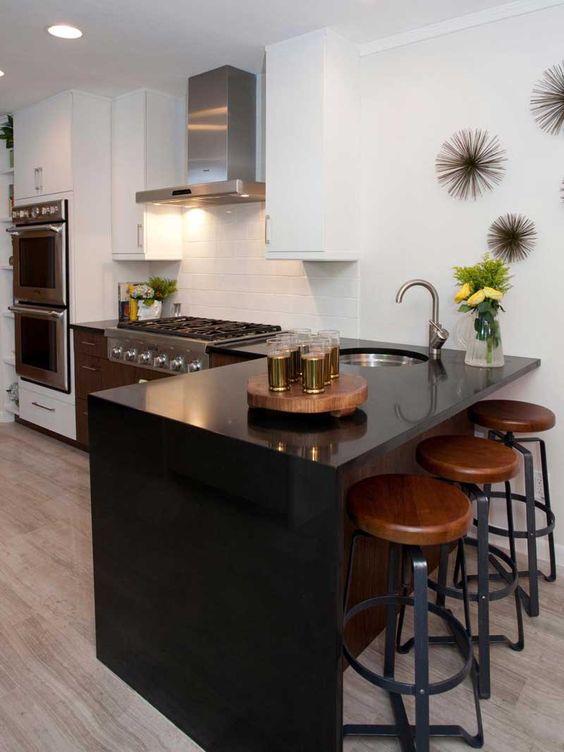
Another significant benefit of quartz countertops is their low maintenance requirements. Unlike natural stone, quartz does not need to be sealed or resealed over time. Its non-porous surface is naturally resistant to bacteria, mold, and mildew, making it a hygienic option for food preparation. Routine cleaning with mild soap and water is typically all that is needed to keep quartz countertops looking their best. The low-maintenance aspect of quartz makes it a practical choice for busy households where time is of the essence.
While quartz is heat-resistant to some degree, it’s important to note that it’s not entirely heatproof. Extreme heat can cause the resin used in quartz countertops to discolor or warp. Therefore, it’s recommended to use trivets or heat pads when placing hot pots or pans on the surface. This minor precaution helps maintain the integrity and appearance of the countertops over the long term. However, compared to materials like laminate or wood, quartz offers better heat resistance and remains a more durable option for kitchen use.

Quartz countertops also offer environmental benefits, as many manufacturers use recycled materials in their production process. Engineered quartz is often composed of waste materials from other stone-cutting processes, which reduces the environmental impact of quarrying natural stone. Additionally, some quartz countertops are certified by environmental organizations like Greenguard or LEED, meaning they meet certain sustainability standards. This makes quartz a more eco-friendly option for homeowners looking to reduce their carbon footprint while still enjoying a high-quality kitchen surface.
The installation process of quartz countertops is best left to professionals due to the weight and complexity of the material. Quartz is much heavier than other countertop options, which requires precise handling and strong support during installation. The seams between quartz slabs are carefully matched to ensure a smooth, cohesive look. Skilled fabricators and installers also cut the quartz to accommodate sinks, faucets, and cooktops, ensuring that the countertop fits perfectly within the kitchen layout.
Because quartz countertops are manufactured, they can be customized to fit a wide range of kitchen designs and layouts. Homeowners can choose between different thicknesses, edge profiles, and finishes to create a countertop that suits their specific needs. While most quartz countertops have a polished finish that highlights their smooth, glossy surface, some manufacturers also offer honed or matte finishes for those who prefer a softer, more understated look. These customization options allow homeowners to create a one-of-a-kind kitchen design that reflects their style.

In terms of cost, quartz countertops are generally priced in the mid-to-high range compared to other countertop materials. While they are more expensive than laminate or tile, they are often less costly than premium natural stones like marble. However, the long-term benefits of quartz, including its durability, low maintenance, and resistance to stains and scratches, make it a cost-effective choice over time. Homeowners who invest in quartz countertops can expect them to last for decades without the need for frequent repairs or replacements.
Quartz countertops are also ideal for homeowners who enjoy a clean and seamless aesthetic. Because quartz is engineered, it can be fabricated in larger slab sizes, reducing the number of visible seams on the countertop. This is particularly advantageous for large kitchen islands or expansive countertop spaces where homeowners want a smooth, uninterrupted surface. The ability to minimize seams enhances both the visual appeal and the functionality of the countertops, as it reduces the potential for dirt and grime to accumulate in cracks or crevices.
One of the key advantages of quartz countertops in modern kitchens is their ability to complement a wide variety of cabinet styles, backsplashes, and flooring materials. Whether your kitchen features sleek, flat-panel cabinetry or more ornate, traditional designs, quartz can be selected to harmonize with the overall aesthetic. Its wide range of colors and patterns makes it easy to coordinate with different design elements, from subway tile backsplashes to natural wood floors. This versatility ensures that quartz countertops can seamlessly integrate into any kitchen design.
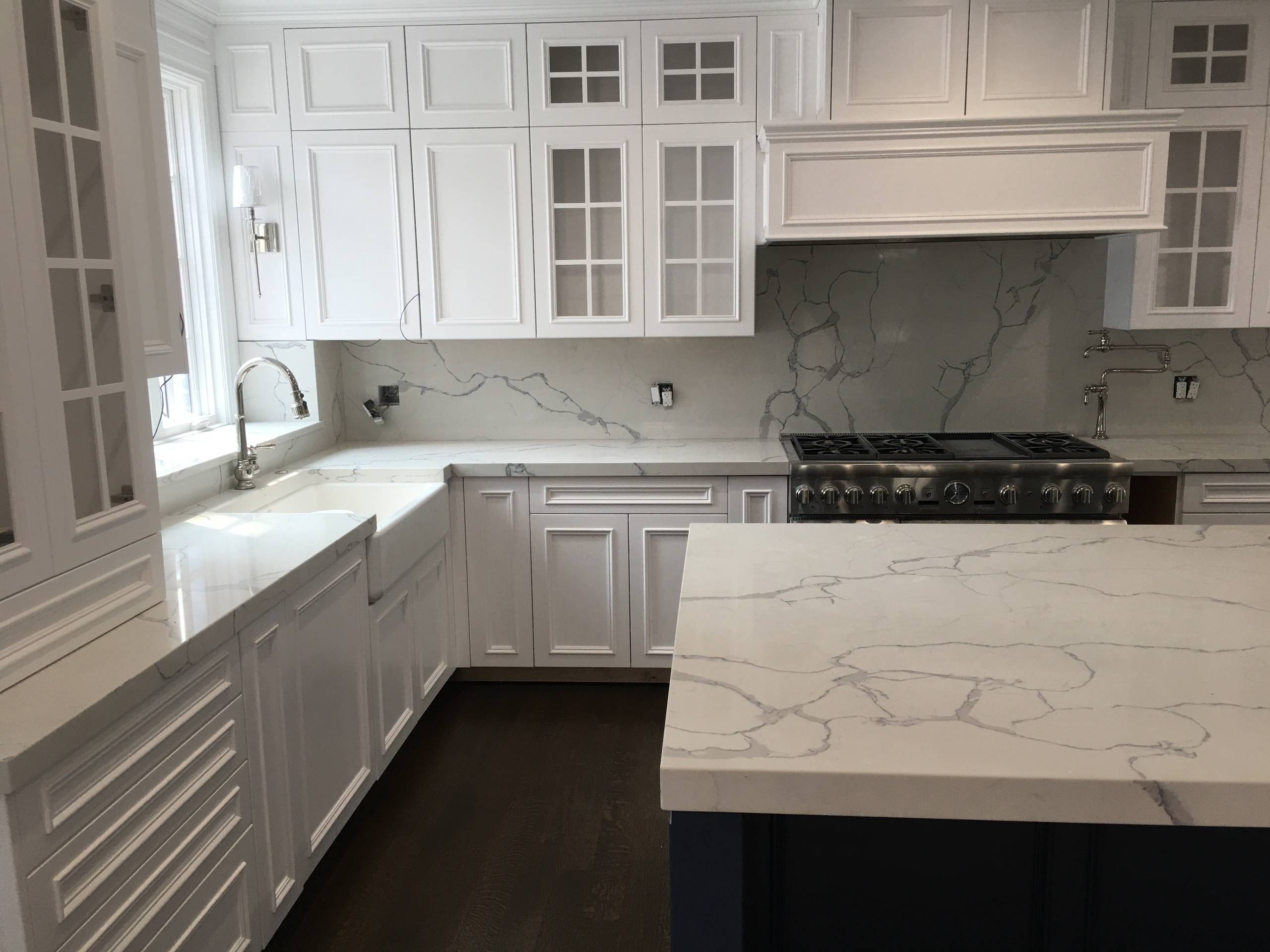
Another important consideration for homeowners is the resale value that quartz countertops can add to their homes. Quartz is considered a premium material, and kitchens with quartz countertops are often viewed as more desirable by potential buyers. The durability, low maintenance, and aesthetic appeal of quartz make it a valuable selling point in the real estate market. Homes with modern kitchens featuring quartz countertops may have an edge over those with outdated or lower-quality materials, potentially increasing the home’s marketability and sale price.
For homeowners who enjoy hosting or cooking large meals, quartz countertops provide ample workspace for food preparation. The large, uninterrupted surface areas that quartz can offer are ideal for rolling out dough, chopping vegetables, or assembling meals. The non-porous surface is also more sanitary, making it easier to clean up after preparing raw meats or handling ingredients that could potentially cause cross-contamination. This makes quartz countertops not only functional but also safer for food preparation.
Quartz countertops also pair well with modern kitchen technology, such as under-counter appliances or integrated sink systems. The strength of the material allows for creative design choices, such as installing cutting boards or drainboards directly into the countertop. This enhances the overall functionality of the kitchen, making it more efficient for day-to-day use. In contemporary kitchens that emphasize sleek lines and minimal clutter, quartz countertops help maintain a streamlined, cohesive look without sacrificing practicality.
Last, quartz countertops offer a level of luxury that elevates the overall aesthetic of any kitchen. The smooth, glossy finish of a quartz countertop can create a striking contrast with natural wood cabinets or industrial-style metal accents. Additionally, quartz’s ability to mimic the look of marble or granite without the associated maintenance requirements makes it a desirable option for homeowners who want the beauty of natural stone but with less upkeep. The luxurious appeal of quartz is one of the reasons it has become a go-to material in high-end kitchen designs.
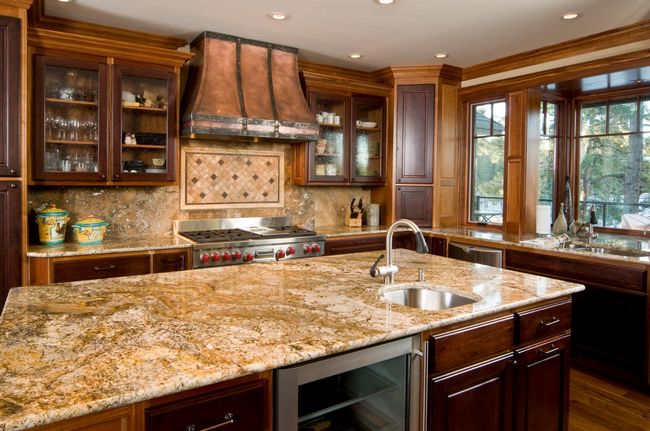
Common Mistakes to Avoid
Not Protecting from Extreme Heat: While quartz is heat-resistant, placing hot pans directly on the surface can cause damage. Always use trivets or heat pads to protect your countertops from high temperatures.
Improper Cleaning Products: Some homeowners mistakenly use abrasive cleaners or harsh chemicals on quartz countertops, which can dull the finish over time. Stick to mild soap and water or quartz-specific cleaners to maintain the shine.
Ignoring Seams: Improper installation can result in visible, poorly matched seams. Ensure your fabricator and installer are skilled in matching quartz slabs to minimize seam visibility.
Choosing the Wrong Color: Quartz comes in many shades, but it’s important to consider how the color will work with your overall kitchen design. Selecting a trendy color that clashes with your kitchen’s aesthetic can reduce the timeless appeal of your countertops.
Not Budgeting for Professional Installation: Quartz countertops are heavy and require professional installation. Skimping on professional help can result in improper installation, which may cause long-term issues with the countertop’s durability and appearance.
Forgetting About UV Exposure: If your kitchen gets a lot of direct sunlight, over time, quartz countertops can discolor. Opt for quartz that is resistant to UV light or consider installing window treatments to prevent this issue.
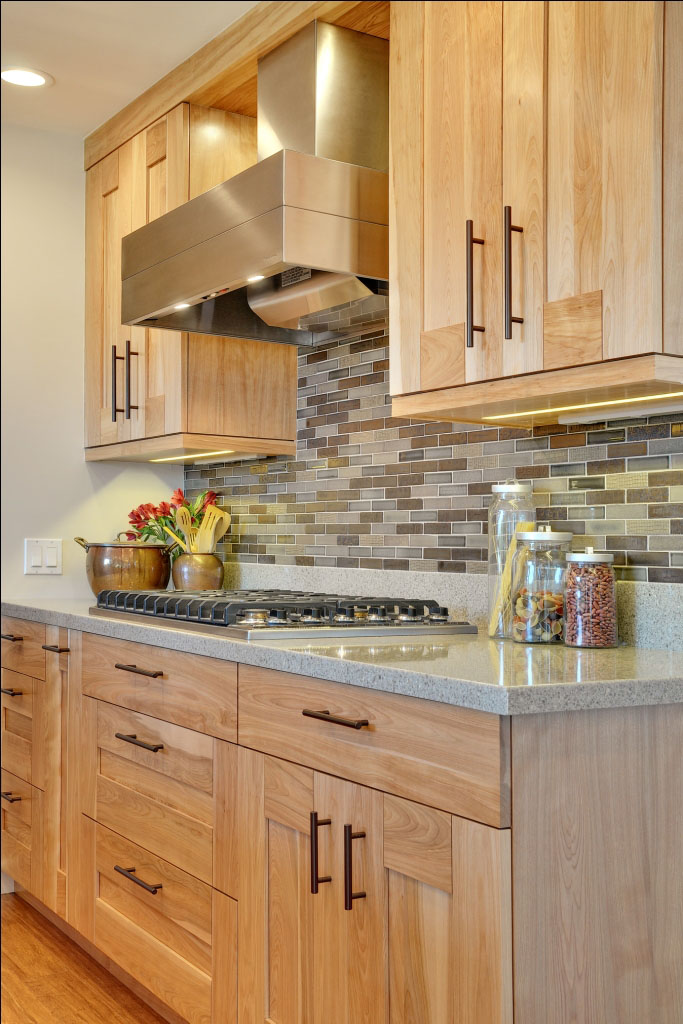
Are quartz countertops more durable than granite?
Yes, quartz countertops are generally more durable than granite. While both materials are hard and resistant to scratches, quartz’s non-porous surface makes it more resistant to stains, and it does not require sealing like granite does. Quartz is also less likely to chip or crack under heavy use, making it a long-lasting option for busy kitchens.
How do I clean quartz countertops?
Cleaning quartz countertops is simple. Use a mild dish soap and warm water with a soft cloth or sponge to wipe down the surface. Avoid using harsh chemicals, bleach, or abrasive scrubbers, as they can dull the finish over time. For tougher spots, a non-abrasive cleaner specifically designed for quartz can be used.
Can quartz countertops be used outdoors?
Quartz countertops are generally not recommended for outdoor use. Exposure to direct sunlight can cause the pigments in the quartz to fade or discolor over time. If you are looking for an outdoor countertop material, consider using natural stone like granite or another material that is specifically designed for outdoor use.

How much does it cost to install quartz countertops?
The cost of installing quartz countertops varies depending on factors like the size of the kitchen, the thickness of the quartz, and the complexity of the installation. On average, homeowners can expect to pay between $50 and $150 per square foot, including materials and installation. Custom edge treatments, sink cutouts, and backsplashes can increase the overall cost.
Can I put hot pans on quartz countertops?
While quartz countertops are heat-resistant, it is not advisable to place hot pans directly on the surface. Extreme heat can damage the resin used in the quartz, leading to discoloration or cracking. To avoid damage, always use trivets or hot pads when handling hot cookware.
What are the most popular colors for quartz countertops?
Popular quartz countertop colors range from neutral tones like white, gray, and beige to more dramatic shades like black and navy. Many homeowners opt for white or light gray quartz with subtle veining to mimic the look of marble, while others prefer solid colors for a more modern, sleek appearance.
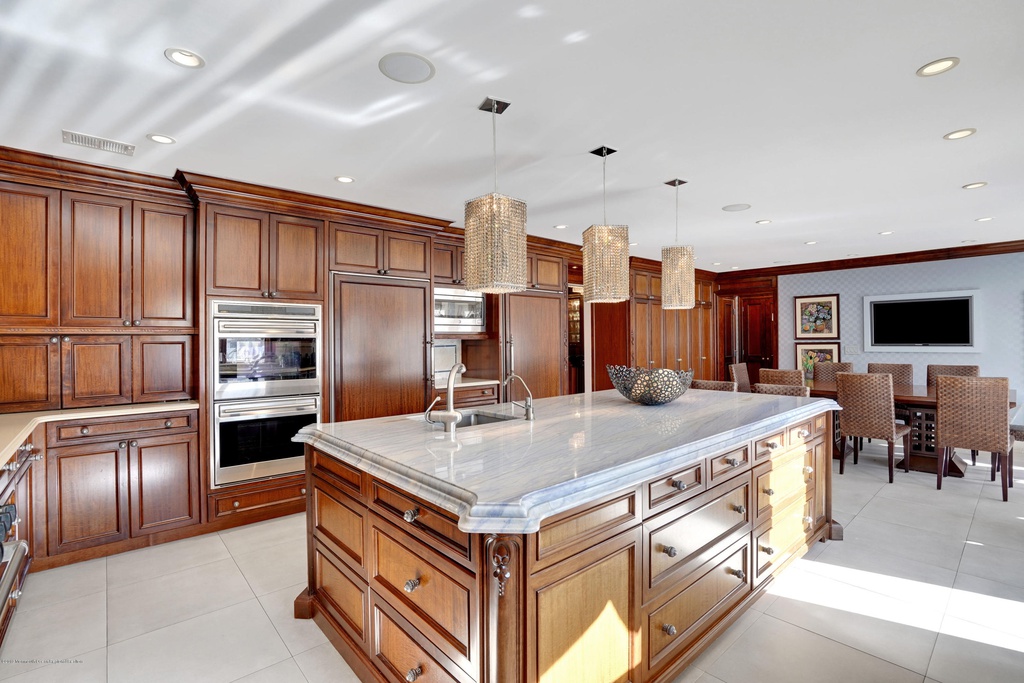
Quartz Kitchen Countertops Have Captured Our Hearts—Here’s Why
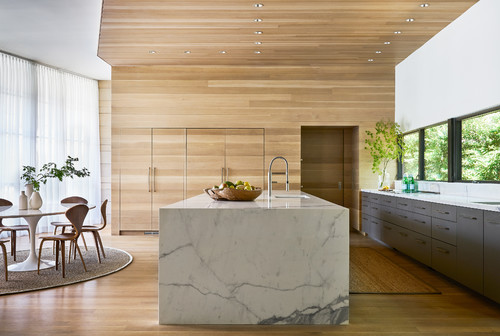
Cambria Torquay Quartz Countertops

Calacatta Laza quartz Home decor kitchen, Kitchen renovation, Kitchen remodel small

Related Posts:
- Kitchen Island Countertop Support
- Kitchen Countertop Stove
- Cool Kitchen Countertops
- DIY Kitchen Island Countertop
- How To Clean Formica Kitchen Countertops
- White Kitchen Cabinets Granite Countertops Photos
- How Much Are New Kitchen Cabinets And Countertops
- Prefab Quartz Kitchen Countertops
- Cost To Redo Kitchen Countertops
- Tuscan Kitchen Countertops